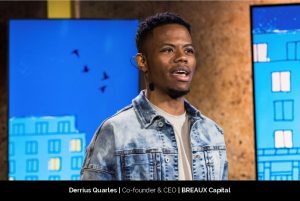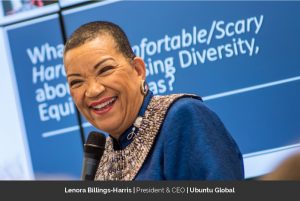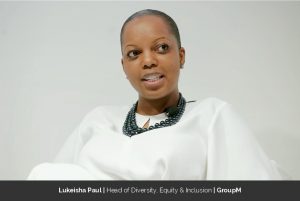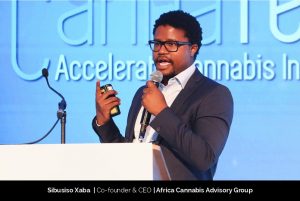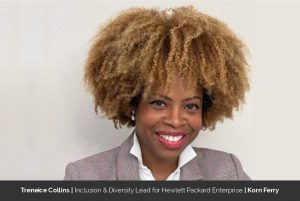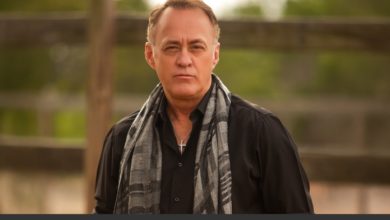Moustapha Sow: Inspiring Africa Youth with a Clear Vision and Message of Hope
The 10 Most Successful Black CEOs to Watch in 2023
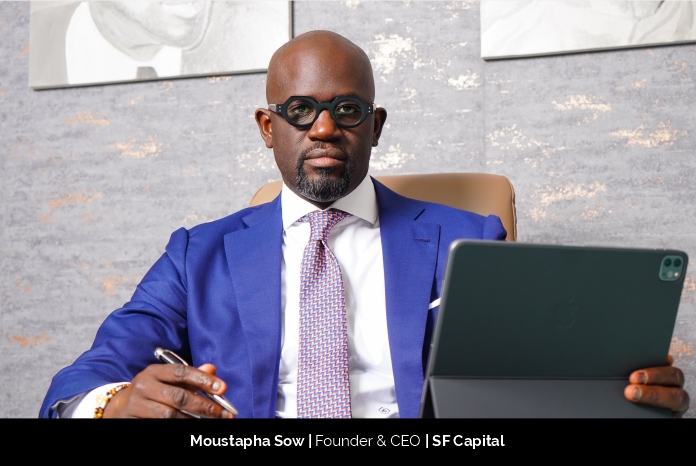
The Founder & CEO of SF CAPITAL, Moustapha Sow, believes
that a leader is a “dealer of hope,” in particular, leadership in Africa, given
the environment and the circumstances. “I think a good leader in Africa is a
leader who inspires because we’re living on a continent where 70 percent of the
population is composed of youth, and most of the time, these generations are lost,
losing hope, losing inspiration. Therefore, as a leader in Africa, a primary
objective is to find a way to inspire these youth in every act or decision that
we make,” he declares.
Showcasing Africa as
A Destination of Hope
The turning point in Moustapha’s career started late in 2009
when he began his career in commercial banking at the UBA, a Nigerian bank
established in Senegal, where he very quickly discovered his interest in the
financial industry. Six months after he quit and went on to do his MBA, he
joined Citibank in 2010 in the global investment banking division, before
coming back to Africa two years later.
During his experience at McGill University while in Grad
school, Moustapha met finance experts who inspired him to focus on investment
banking. His journey with them, believing and knowing that the only place he
could thrive was in Africa, was extremely helpful in making the decision, not
only to set up SF CAPITAL but to be where he is right now.
Moustapha’s faith in setting up SF CAPITAL was driven by the
need to create a new generation of advisers who understand Africa and want to
showcase the continent as a destination of hope. His inspiration came from his
experience as Head of Africa atICIEC, a critical arm of the Islamic Development
Bank Group’s exports and investment promotion strategy, where he had the
opportunity to travel, encounter, and be involved in the development of several
projects. He also experiences a significant gap and opportunity in the
financial advisory sectors where often some cultural and market realities were
not taken into consideration.
“As an African who has experience working abroad with
several commercial, investment, and development banks, I believe that we have
the singular advantage of understanding Africa better; hence the setting up SF
CAPITAL, where over the past seven years we’ve been adding significant value by
advising on projects that have been significantly improving people life across
the continent,” he observes.
Closing The Gap to
Support and Boost Infrastructure Projects in Africa
SF CAPITAL is a Pan-African Investment bank set up in 2017
with a focus on advising institutional clients such as government, financial
institutions, and corporate clients. Its primary objective is focused on debt
structuring. The focus, so far, has mainly been on structuring transactions to
support infrastructure and trader across the continent.
Over the last seven years, SF CAPITAL has raised over seven
billion EURO supporting infrastructure projects such as roads, sanitation,
healthcare facilities, sport facilities, etc. It has also supported many banks
in Senegal, Burkina Faso, Nigeria, and Ghana, raising and financing debts that
allowed them to underwrite transactions they wouldn’t have been able to
structure in the past.
From an investment banking firm, SF CAPITAL has grown into a
full investment management firm and recently acquired a microfinance
institution called MICROSEN. The group also includes West African Health Care,
which specializes in developing healthcare infrastructure in Senegal and across
West Africa.
SF CAPITAL’s partnership with INNOVO PROJETS LTD, a UK based
EPC company has allowed to better support and boost infrastructure financing
with an inclusive approach that allows local construction to participate and
benefit from transfer of technology as well, especially when Africa need is
huge; between a hundred thirty and hundred eighty billion US dollars every year
to cover its gap in infrastructure financing, and only fifty billion is
available.
This solution must allow government to partially resolved
youth employment. For instance, we have structured a seven hundred million road
program project in a country which will create 50,000 direct jobs, not to
mentioned that 60 local construction companies and 380 SMEs will be involved in
the next five years.
“This means there’s a significant gap that requires
know-how, structure, and a lot of capital for Africa to close that gap. And
when you talk about that need, the importance of tailored advisory services
becomes extremely important on the continent,” Moustapha explains.
His vision for SF CAPITAL was clear since day one, and he
wants it to be one of Africa largest investment banks in the next 10 years,
with the objective that 100 years from now, it should be thought of as highly
as the like of Rotchild, JP Morgan, Goldman Sachs, the top investment banks in
the world.
Supporting Trade
Finance Across Africa-Supporting Banks
When it comes to his expertise, Moustapha’s main competitive
advantage has been his experience in the banking field, as a commercial banker,
investment banker, and then a development banker, as well as his position at
the Islamic Development Bank, where he covered Africa, allowing him to travel
and be involved in several projects across the continent. “We managed to
understand Africa’s needs and challenges, which helped in our strategy at SF
CAPITAL, a firm focused and disciplined on two main activities within
structured finance, such as projects financing and trade financing,” he shares.
As head of Africa of ICIEC, the Islamic development bank’s
exports credit arm coupled with his investment banking experience, Moustapha
learned and understood the best way to structure Export Credit financing across
Africa, taking into consideration the traditional export credit agency’s needs
and also the challenges that African governments were facing when selecting the
best export credit agency products and countries.
“That’s why we’ve been successful in supporting trade
finance across Africa, supporting banks to increase their capacity and
capability. These activities have been a focus point and our expertise and
experience in the commercial investment and development banks has been
extremely vital and capital to the success of SF CAPITAL,” he maintains.
“Dream, but set yourself
life goals ” – Denzel Washigton
Overcoming the
Challenge of Building Trust
One of the challenges that Moustapha faced was that when he
entered the field, it was at the embryonic stage where African governments and
business leaders mainly relied to advisory from overseas. Being a young African
trying to position himself in this market was extremely challenging.
“That trust in our capability as Africans is usually
scrutinized under the microscope. There’s a saying that goes: The problem
usually with Africans is that we don’t often trust each other capability,” he
observes. “It was a challenge, but we maneuvered, harbored, insisted,
persisted, and delivered, and that’s how we managed to progressively create
that trust between us, our stakeholders: clients and partners.”
With trust as the biggest roadblock, Moustapha realized a
valuable lesson, that in life, you have to be disciplined and consistent, but
also reliable and accountable. If you deliver, people will do business with you
because, at the end of the day, that’s what matters to them. “We’re living on a
continent where challenges can easily be transformed into opportunities, and
where discipline, consistency, and reliability are the key lessons and values
I’ve put into play and applied during my journey within SF CAPITAL,” he
reflects.
The Cultural Barriers
and Limiting Beliefs that Prevent Success
Moustapha candidly admits that when he started SF CAPITAL,
one of the biggest challenges he had was being a young African, trying to get
into a sector where they were used to dealing with big international investment
banks.
“Knowing that in Africa we still have that challenge, it’s a
fact and I have to admit that. But the challenge truly resides in being a local
African, especially in Francophone Africa, where it is extremely difficult. One
of the biggest challenges we have in Africa is that we don’t believe in
ourselves and that’s a fact and a reality,” he observes.
Moustapha reveals that believing in himself, working hard,
and being disciplined were the main drivers that helped shape him into a
customized leader. “I use the word customized leader carefully when it comes to
Africans. We need leadership in this field, in particular,” he remarks.
“Inspire, inspire, inspire…. Inspiration should be the key element of whatever
we do.”
Moustapha points out that a significant challenge African
leaders have when it comes to impacting the youth is that it has to be
customized to their reality. He notes that 70 percent of African youth are
below 25 years of age and most of these kids are lost, sometime with no
education, and they all want to become rich very quickly.
“The challenge we have is making them understand that money
is not the most important thing for successful people. But once you succeed in
Africa and tell young people that money is not the most important thing, people
start looking at weirdly. When someone is successful in Africa, he/she needs to
be careful on the way he/she acts, behaves, manage his/her companies, and also
be present because unfortunately in Africa, particularly in the Francophone
regions, it is not well-perceived to express success,” he laments.
Elaborating on this cultural challenge, Moustapha shares
that while it’s not well-perceived to show success, at the same time one wishes
to inspire the youth to aspire for the same or even better. Hiding one’s
success while inspiring the youth is an extremely challenging balancing act,
and at some point, one must balance these two contradictions, or take the lead
to show the African youth that it’s definitely possible to succeed in Africa,
whether you’re educated or not.
“In Senegal, there’s a saying that school will never get you
rich, which is absolutely wrong. We need to keep communicating, engaging, be
supportive, and stay inspired because at the end of the day, that’s what it is
all about,” he insists.
A Leader with a Clear
Vision and a Dealer of Hope
Moustapha defines himself as a leader with a clear vision, a
dealer of hope. His responsibility from day one, as Founder & CEO at SF
Capital, has been to create brand awareness, and he could not have done that
without being focused, structured, and disciplined in delivering top-notch
solution, which he did successfully.
He shares, as an example, the stadium of Me Abdoulaye Wade
in Senegal. The PSD (Programme Spécial de Désenclavement), a 700 million euros
project mobilizing about 60 companies and creating 50,000 employments, was a
lanmark transaction. The 250 million euros raised for Coris Bank to support oil
import in the country, and the 130 million euros raised for BNDE, were also an
example of transactions that required discipline, know-how, and focus.
“It was part of my responsibility to cement, consolidating
our expertise plus our mixed staff from everywhere around Africa. We’ve
employed individuals that believe in Africa, and thus in SF CAPITAL. This
required providing a decent work environment because one of the challenges when
it comes to attracting talent is that you’re competing with the big names.
Inspiring talent to join SF CAPITAL posed a challenge as it was at an embryonic
stage. Our arguments and leitmotiv, that we provide significant opportunities
and incentives that big names wouldn’t, sold it for us,” Moustapha reveals.
Moustapha feels that his biggest recognition was definitely
the one he received in 2009 when Forbes magazine honored him by putting him on
its cover. That also significantly improved his image and the way people
perceive him as a young leader in the financial industry, not only in Senegal,
but across Africa.
“Don’t aspire to earn a
living, aspire to make a difference” – Denzel Washington
Empowering People to
Take Ownership and Lead
As a leader, Moustapha gets his team motivated by empowering
them. “When you empower people, they take ownership. When they take ownership,
they feel responsible, when they take responsibility, you train them, provide
them with the support and training they need, and then they will give it back
to you by taking the business in the direction you want them to take it. At the
end of the day, you have to make sure that your objectives are aligned with
theirs, and implementing a culture driven by success, where everybody has
responsibility, is extremely important in business nowadays, particularly in
Africa,” he explains.
Moustapha believes that diversity has been extremely
valuable in ensuring a culture of integrity and innovation, and he has several
nationalities working within his teams and implementing a competitive
Anglo-Saxon-type culture, different from the French culture-dominant
environment in which they operate.
“I think the mix has been extremely valuable with regard to
ensuring integrity and innovation at the same time. We believe in hiring the
best and that requires putting our staff in a setting where they see value, not
only within the company but also within themselves, thus empowering them.
Another option is a mixed-gender staff, as today, women hold the most decisive
positions in the different companies inside our group. We believe in women’s
empowerment and the values that women bring to corporate overall,” Moustapha
maintains.
When it comes to maintaining a work-life balance, he admits
that it has been extremely difficult because, as an entrepreneur, he set up the
company seven years ago in an extremely challenging environment. His
responsibility has always been to focus on the business, so having a personal
life has been extremely difficult for him.
“But now that we’ve organized everything where each company
is being led by somebody else, I think I’ll give myself more time to focus on
my personal life. It has been very difficult, but I’ve always managed to spend
some time with my family. For example, every workday when I’m in the office in
Senegal, I manage to go home between 5 to 8 PM and spend some time with my
children’s who are both 4 years old. It’s one of the best decisions I’ve ever
made, and I’m really grateful for it,” he remarks.
Moustapha’s personal goal is to provide a legacy for the
next generation to believe that in every sector across the continent, Africans
can and should take the lead, whether in finance, industry, infrastructure, or
education. While he believes that Africans have talent, he observes that this
talent needs to take ownership and leadership.
Moustapha’s parting message for aspiring leaders is as
follows: “Let’s not aspire to make a living rather aspire to make a difference.
Let’s guide this new generation. That shouldn’t only be in speeches rather in
action also. We need to show them the way, engage with them, be close to them,
keep our doors open, and spend some time with them. We need to find time to
talk to the youth and inspire them, and one of the main reasons I’ve been
structuring SF Capital as a holding company in a way where nothing will depend
on me is also to have free time where I can travel, meet with African youth,
and inspire them to go for their personal goals. I’ve also aligned other
leaders with my message to inspire this new generation across the continent.”






